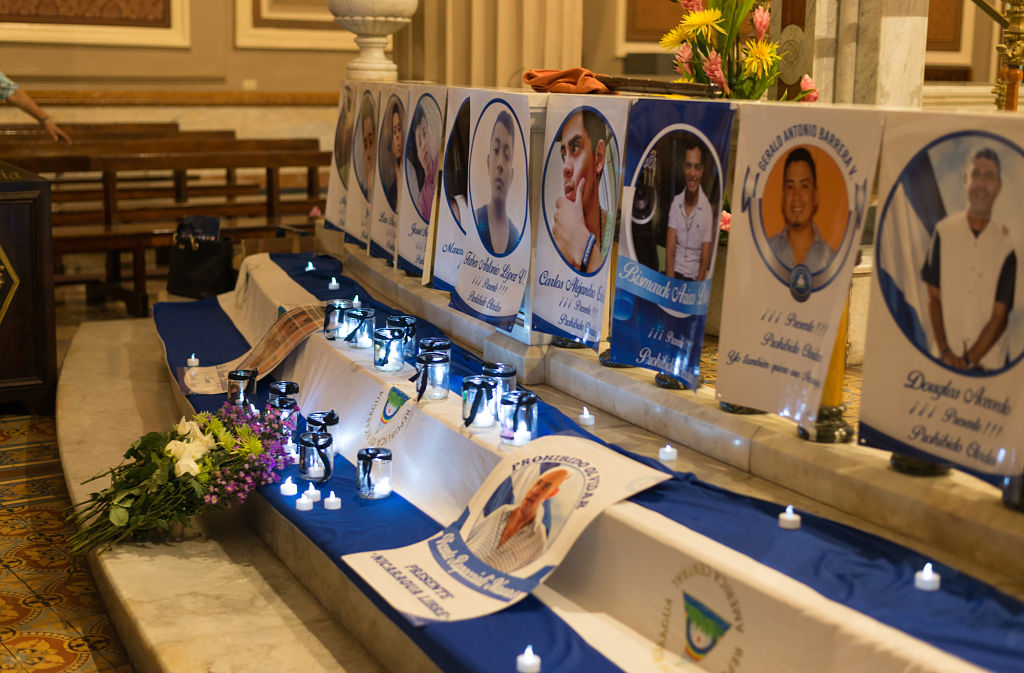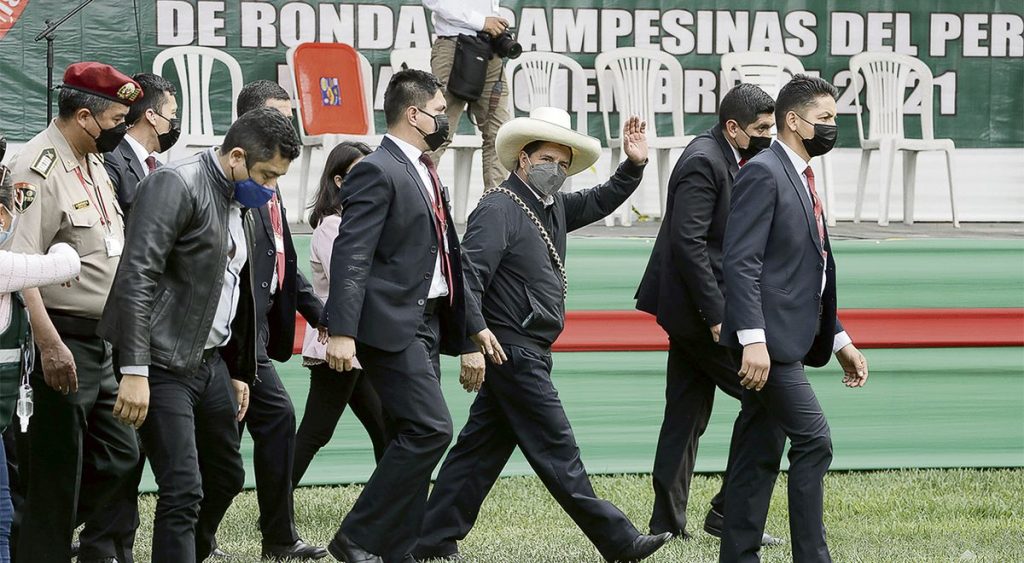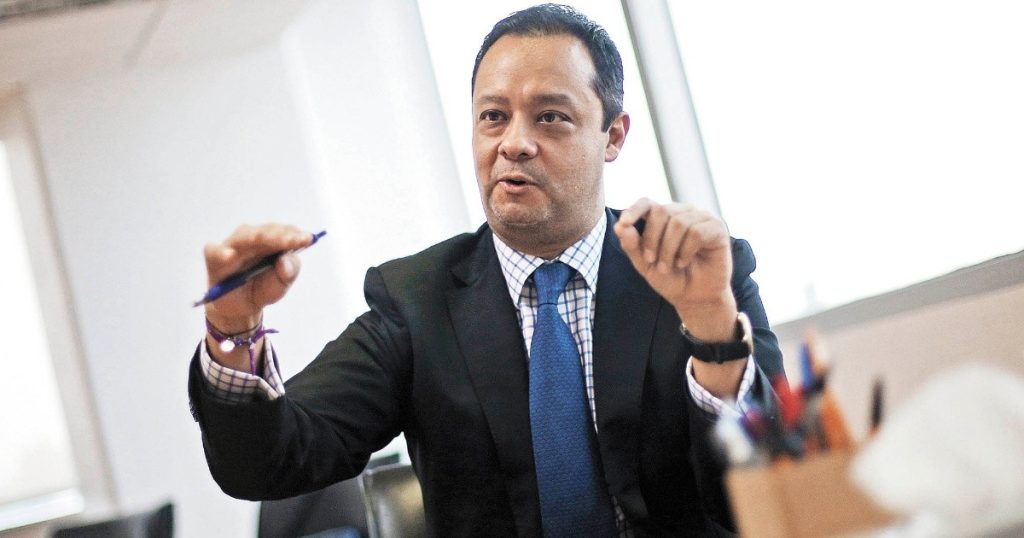Civil and human rights organizations in Nicaragua remain concerned that the crimes committed by the Daniel Ortega regime, during the civic protests of April 2018, remain in impunity without an adequate mechanism that allows the victims’ families to obtain justice.
The problem, they claim, is that the regime still does not recognize its responsibility for the murders committed since April 2018, and they fear the deaths of indigenous people on the Caribbean Coast and LGTBIQ + people, according to a complaint by human rights activists.
Members of the Human Rights Collective Nicaragua Never Again, the Mothers of April Association (AMA), the Center for Legal Assistance to Indigenous Peoples (CALPI), and the LGTBIQ + Articulation Table (Mesart LGTBIQ +), expressed their concern in the forum “Towards the establishment of a process of justice and accountability for Nicaragua ”, in which they highlighted the current state of human rights in Nicaragua.
Impunity for State Crimes in 2018 Concerns
The complaints mentioned by the defenders and relatives of victims of human rights violations have a common denominator: impunity. Josefa Meza, a member of the April Mothers Association and mother of the young man murdered in May 2018, Jonathan Morazán, said that the April Mothers are concerned that the government’s murders against the April Rebellion protests also go unpunished. .
Meza recalled that, among those killed, there were 27 minors, 15 women and 340 men.
“The second challenge is the search for justice. The State still does not recognize its responsibility in the murder of my son and the rest of the victims of the repression. We have been victims of a smear campaign by the Government against us and against the memory of our children ”, highlighted Meza.
Her son, Jonathan Morazán Meza, 21, was killed while participating in what became known as the “Mother of all marches,” on May 30, 2018, in Nicaragua.
That day, 19 mothers lost their children in that march that demanded an end to the repression by the Daniel Ortega regime, which, until that date, he had already left 90 murdered.
“They accuse us of inventing the figures and manufacturing dead people. They refer to our children as criminals, coup plotters and terrorists to justify the crimes. (The State) returned to use the same argument as the executions: they were not attacks, but responded to settling accounts between criminal gangs, ”Meza highlighted.
The Inter-American Commission on Human Rights (IACHR) updated its report on deaths since April 2018 in Nicaragua, highlighting that 355 people have been murdered.
More than 142,000 exiles, affirms the Human Rights Collective
Wendy Flores, from the Human Rights Collective, recalled that, since 2018, 142,000 people have left Nicaragua to protect their lives and personal integrity due to the incessant repression that is being experienced in the country, highlighting official data from the Costa Rican government.
“Until October of this year, 103,275 people had requested refuge in this country (Costa Rica), of which 39,172 correspond to this year (2021). It is even the highest number of refugee applications compared to 2018, ”said Flores.
In addition, he mentioned that there are at least 40 journalists who “were forced into exile,” as well as a dozen lawyers and human rights defenders who have fled Ortega repression in Nicaragua.
The bloody internal colonization of the Caribbean Coast
María Luisa Acosta, Calpi coordinator, added that in Nicaragua an attempt to internally colonize the Caribbean Coast is being maintained, through forestry and mining companies that, according to their own data, “Nicaragua has 30% of its national territory under concession.”
These invasions, according to Acosta, also come from the hand of the cultivation of the African palm that “expands uncontrollably along the Caribbean Coast.”
As a consequence, the expansion of the agricultural frontier and extensive cattle ranching have spread in the protected territories of the Caribbean Coast, causing the “usurpation of these territories”.
“In addition to the usurpation of land, the attacks that are increasingly vicious and cruel against these communities have intensified, as evidenced with the Alal massacre in January 2020 where, in addition to murdering six Mayangnas indigenous people, 16 houses were destroyed and livestock were killed, ”Acosta exemplified.
In this and other cases, Acosta stated that the State of Nicaragua has kept silent about its obligation to protect indigenous peoples, but also “has not complied with the protection measures issued by the organs of the Inter-American System.”
“Instead, the State denies the existence of these events, attacks anyone who supports indigenous peoples in demanding their rights, their complaints and the disclosure of the attacks, keeping them in absolute impunity,” he stressed.
Viciousness against people of sexual diversity
Jacon Ellis William, from the LGBTIQ + Articulation Table, added that at least eight people have been murdered since Ortega unleashed repression against all opponents in the country, including members of the LGBTIQ + community, mainly those who are dedicated to the defense of human rights.
He added that 42 people from those groups were also detained “including three transgender women,” based on data from the Report of Affects to LGBTIQ + Transgender People, developed after the start of the crisis in Nicaragua by its organization.
“Three women were imprisoned in prisons and their physical integrity was violated,” said Ellis Williams during his speech, during which he also highlighted that all reported cases remained unpunished.


















